At an “Education for all is responsibility of all” summit
on 14th February 2013, the then Kaduna State Commissioner for Education, Alhaji
Usman Mohammed shocked his audience by disclosing that of a total of 1,599
teachers selected from across the state who were given primary four tests in
Mathematics and Basic literacy; only one of them scored 75 percent, 251 scored
between 50 to 75 percent and 1,300 scored below 25 percent. When the same
examination was conducted for 1,800 primary school pupils, according to
Mohammed, most of them failed woefully. “We are not surprised about the
performance of the pupils because how can they know it, when their teachers
don’t,” he said.
The implication of only 251 out of 1,599 teachers scoring
above 50 percent means that a mere 15.7 percent of those tested passed. That
1,300 out of 1,599 teachers scored below 25 percent also implies that 81.3
percent of the teachers tested performed woefully in an examination meant for
Primary Four pupils. Unfortunately, while the then governor, Alhaji Mukhtar
Ramalan Yero, may have properly diagnosed the problem, there is no evidence
that his administration took any action against the teachers who were certified
illiterates.
Incidentally, just three months earlier, on 10th November
2012, Yero’s immediate predecessor, the late Governor Patrick Yakowa had
disclosed that a verification exercise carried out in the state revealed that
no fewer than 2,000 teachers secured their appointments with fake certificates.
While he did not disclose what happened to those teachers, Yakowa said
memorably: “Teacher quality dictates the success of any educational
pursuits…and no nation rises above the quality of its teachers.”
I have highlighted the foregoing to show that the problem of illiterate
teachers in Kaduna State predates the era of Governor Nasir el-Rufai and he is
not even the first to have conducted a test of their suitability. The
difference is that el-Rufai has decided to confront the illiterate teachers
who, aside the support of a powerful union, may also be taking advantage of the
complicated politics of Kaduna State to fight back.
However, before we go to the kernel of the issue, it is
important to reiterate that this is not a problem peculiar only to Kaduna. On
26th May 2012, the then Executive Secretary of the Universal Basic Education
Commission (UBEC), Mr Mohammed Modibbo lamented about the quality of teachers
in most of our public schools, after which he zeroed in on Sokoto State when
members of the Senate Education Committee visited his office: “More than 50 per
cent of the entire teachers in Sokoto State cannot read because they are
unqualified. So how can they read the UBE books we sent to them? How would they
be able to teach the children how to read?”
While I am well aware of the efforts Governor
AminuTambuwal has been making in the last two and a half years to change that
sordid narrative and the dramatic improvement he has recorded as a result, the
point remains that we cannot continue to live in denial about a systemic
problem that is national. When my friend, BolajiAbdullahi, as Education
Commissioner in Kwara State, conducted the same primary four test for 19,125
teachers in 2008, not only did majority fail, 259 actually scored zero. But, as
I said earlier, the problem is not restricted to any state or zone, it is
national.
On 15th November 2012, the then Education and Technology
Commissioner in Ogun State, Mr SegunOdubela said that following a verification
exercise conducted by a team of consultants, about 6,000, representing 31
percent of 19,146 teachers in the state, were found to be unqualified while
another 800 entered the service with forged certificates; including the case of
a teacher “who would have commenced primary school four years before his birth”.
In 2009, Oyo State (under Governor Christopher Alao-Akala) conducted an oral
assessment exercise for teachers in the state public schools where it was
discovered that accounts teachers couldn’t define Payee and social studies
teachers didn’t know the meaning of UNESCO.
In case labour leaders have forgotten, let me refresh
their memory with what happened in 2011 when one of their own, the thenEdo
Governor Adams Oshiomhole paid an unscheduled visit to a primary school in the
state where he encountered an illiterate teacher. Asked for his working hours
byOshiomhole, the teacher first said he didn’t know, then he murmured, “7am to
4pm Sir”. Apparently bemused, Oshiomhole turned to one of the pupils and asked,
“Where is your teacher?” Before the boy could speak, the teacher quickly
interjected: “Na me”.
At a town hall meeting held in July 2013, Oshiomhole
disclosed that from the audit carried out in the state, “We found that of all
our primary school teachers, only 1,287, representing 9% out of 14,484 teachers
have proper records in our system. 91% have various forms of discrepancies in
their records. About 1,379 teachers, representing 11.5% claim that they
obtained their Primary School Certificates after they had been employed as
teachers. In fact, some obtained their Primary School Certificates not more
than two years ago, from the school in which they were employed as teachers.”
The challenge of our educational system is huge.
Personally, I came face to face with this problem in the course of my two-year
stint as a member of the panel of assessors for the Nigerian Brewery Plc in
their annual Teacher of the Year Award. My 15th October 2015 piece titled
‘Teaching Computer on Chalkboard’ (reproduced below) tells a compelling story
of the tragedy of our education sector and the challenge of the teaching
profession in Nigeria today.
Unfortunately, those who have attempted a radical
approach to deal with the problem have been subdued by labour unions. A classic
example was what happened in Ekiti State in June 2012 when both the Nigeria
Union of Teachers (NUT) and the Academic Staff Union of Secondary Schools
(ASUSS) directed their members to stay away from the Teachers Development Needs
Assessment (TDNA) test organised by the administration of then Governor, Dr KayodeFayemi.
In the end, those illiterate teachers were able to morph into the opposition
that eventually terminated Fayemi’s second term ambition.
It must be said, however, that part of the problem in the
Kaduna imbroglio is the temperament of El-Rufai who has not learnt to build
consensus around public policies. The leakage of selected scripts of the
teachers was an act of desperation that stands condemned. But what is more
worrisome is the growing culture in which organized labour believes it must,
acting like a mafia, oppose any attempt that hints at sanitizing the system;
especially if it means that a few bad eggs among them would be weeded out. It
is not a productive stance and I hope labour leaders will sit down to
reappraise their position. The question is: Will those union leaders put their
own children in schools where teachers peddle ignorance rather than knowledge?
Whatever one may say about el-Rufai, he has demonstrated
again and again that to make a difference in a society like ours, a public official
should act like someone conducting an orchestra: you just have to back the
crowd. Therefore, the decision he has elected to take regarding illiterate
Kaduna teachers may not be popular, and one can query or deplore his methods,
but we cannot blame him for attempting a solution. As @cchukudebelu quipped
last weekend, the only place where someone who failed a primary four test still
qualifies to impart knowledge to others is on Twitter!
In practically all the research findings on learning, the
broad conclusion is that the quality of teacher is the single most important
school variable influencing pupil/student achievement. And since you cannot
give what you do not have, it stands to reason that an illiterate teacher can
only produce illiterate pupils/students. And if, as President MuhammaduBuhari
said on Monday, “an estimated 13.2 million children are out of school” in
Nigeria due to no fault of theirs, should we continue to deny the several
millions of others who are in school the benefit of quality education?
That we are all aware of the problem can be glimpsed from
the fact that hardly any Nigerian with modest means now put their children in
public schools. Only children in the villages and those from the urban poor
attend public schools in our country these days. Yet, nothing demonstrates the
fact that there are gems among many of these children that are being denied
opportunities as succinctly as the story of Mabel Igbokwe, one of the
scholarship beneficiaries of Father George Ehusani. By dint of hard work and
self-discipline, Mabel has been on top of her class since she was, by
the grace of God and the support of generous friends of Father Ehusani,
“transmuted” from the Kpaduma slum primary “school” to an elite Catholic
secondary school in Asokoro, Abuja.
To better appreciate where Mabel is coming from, I enjoin
readers to go back to my column of 15th March, 2012 titled ‘A Father’s Love’
which I have also pasted below. It is a testimony to the power of quality
education that a girl that was practically left to waste, like hundreds of
others, has not only maintained an impeccable academic and discipline records,
she recently emerged the Head Girl of Divine Mercy Secondary School in Asokoro,
Abuja. In fact, all the three SSS3 students (from the six) who come from the
Kpaduma slum, through the intervention of Father Ehusani, are all prefects in
the school. The message from that is simple: If we give many of our children
roaming the streets the opportunity for quality education, they will excel.
Meanwhile, Father Ehusani is now confronted with the problem of looking for
money to fund the university education of these children.
All said, while people may disagree with el-Rufai’s
politics, on this issue of illiterate teachers, the governor did not just wake
up to start conducting test, he interrogated the problem. On Sunday, el-Rufai
posted on a small online platform, a May 2015 report he got from the Education
Sector Programme in Nigeria (ASSPIN) in concert with the United Kingdom
Department for International Development (DFID) which dissected the problems in
the Kaduna education sector and offered possible solutions. That, he argued,
explained why upon assuming office in 2015, he contracted the National Open
University of Nigeria (NOUN) to conduct a preliminary test on all primary
school teachers in Kaduna, an exercise he repeated in 2016 with “a notice to
sharpen their skills for a final test at the expiration of the five-year
deadline given to them in 2012 (by a previous administration) to upgrade their
knowledge in pedagogic and content skills.”
However, the copycat governors who may want to adopt the
‘Kaduna formula’ should reflect more. One needs only to look at the education
budget of most states to realise that many of the governors are part of the
problem. Aside the fact that the votes for education are usually small, a high
percentage of the money goes into procurement which then accounts for why
teachers are not paid their meagre salaries as at when due while illiterate
political office holders live large at their expense and that of other ordinary
citizens. Besides, most of the unqualified teachers were brought to the system
by politicians. Therefore, whatever may be the problem, teaching is still a
thankless job in our country and one in which many professionals are making
enormous sacrifices, even in public schools.
Despite the fact that the work environment is poor and
the remuneration even poorer, Nigeria is still blessed with excellent teachers
who are diligent at their work and eminently qualified for what they do.
Besides, it will take more than sacking illiterate teachers to resolve the
crisis of our education; we must return to the same communal spirit by which
most of us were brought up as captured in the Yoruba adage, ‘Enikanlon bi
omo, gbogboaiyelonbawo’ (it
takes an entire community to nurture a child) which other societies have since
adopted and adapted for the advancement of their people.
As President Buhari, who admitted being raised as an
orphan, pointed out on Monday, if we must develop our society, education
remains the only “launch-pad to a more successful, more productive and more
prosperous future”.
Source:
ThisDay
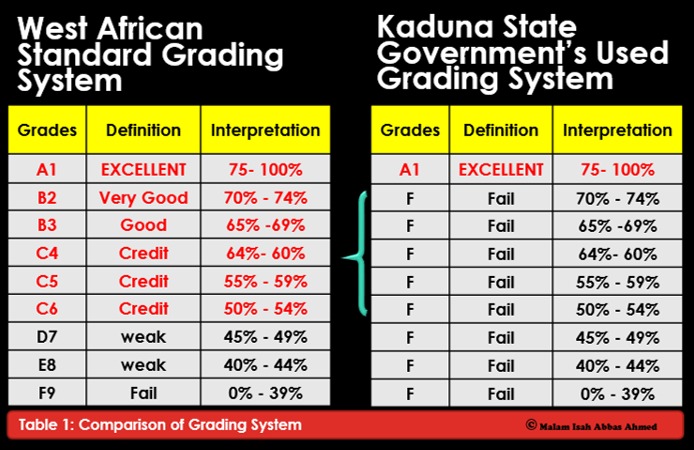
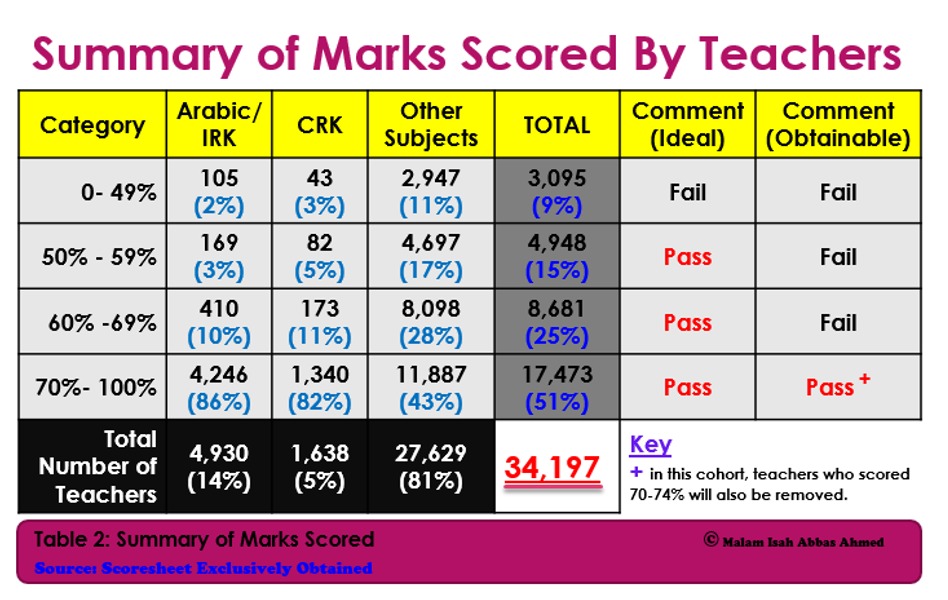
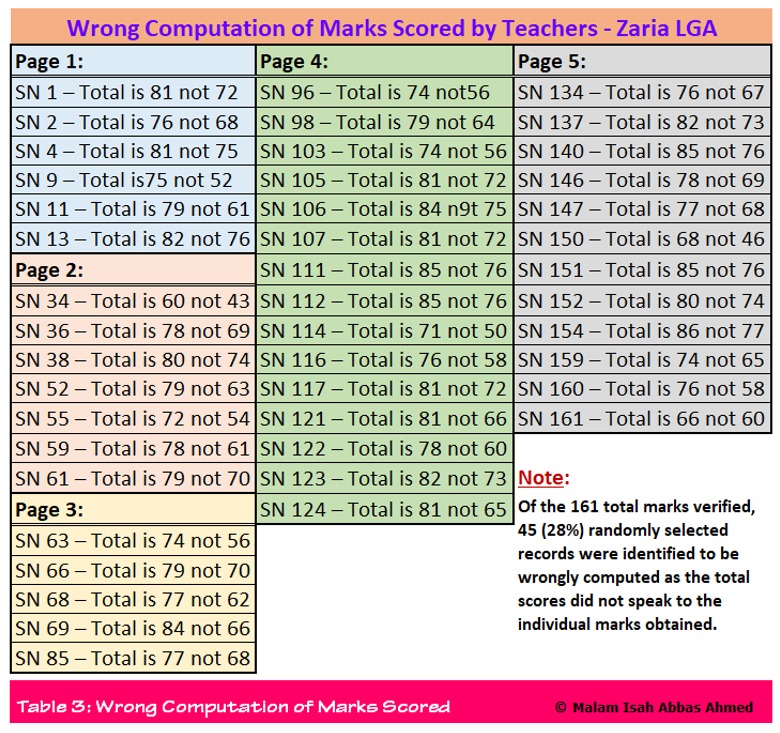
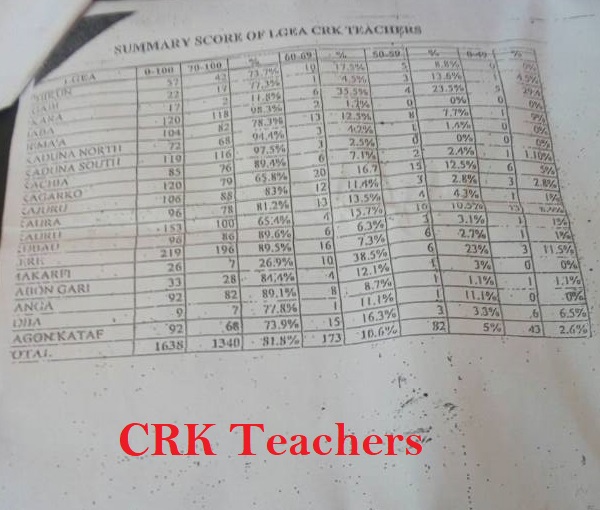
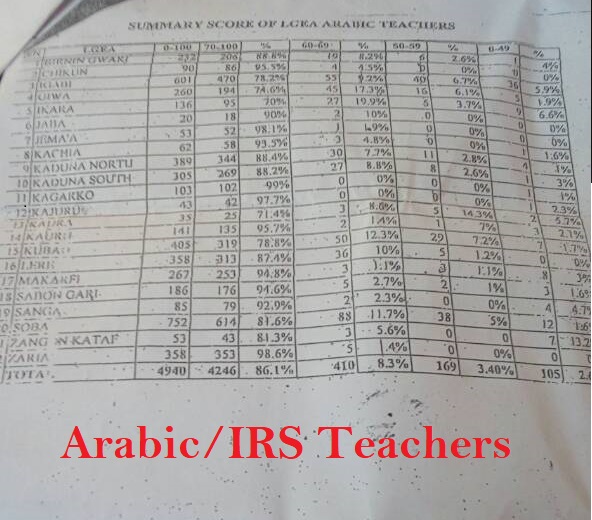
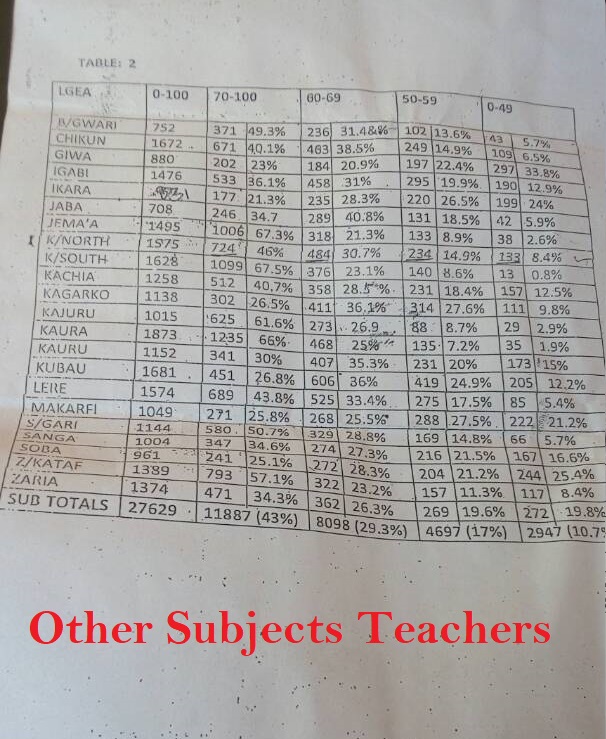
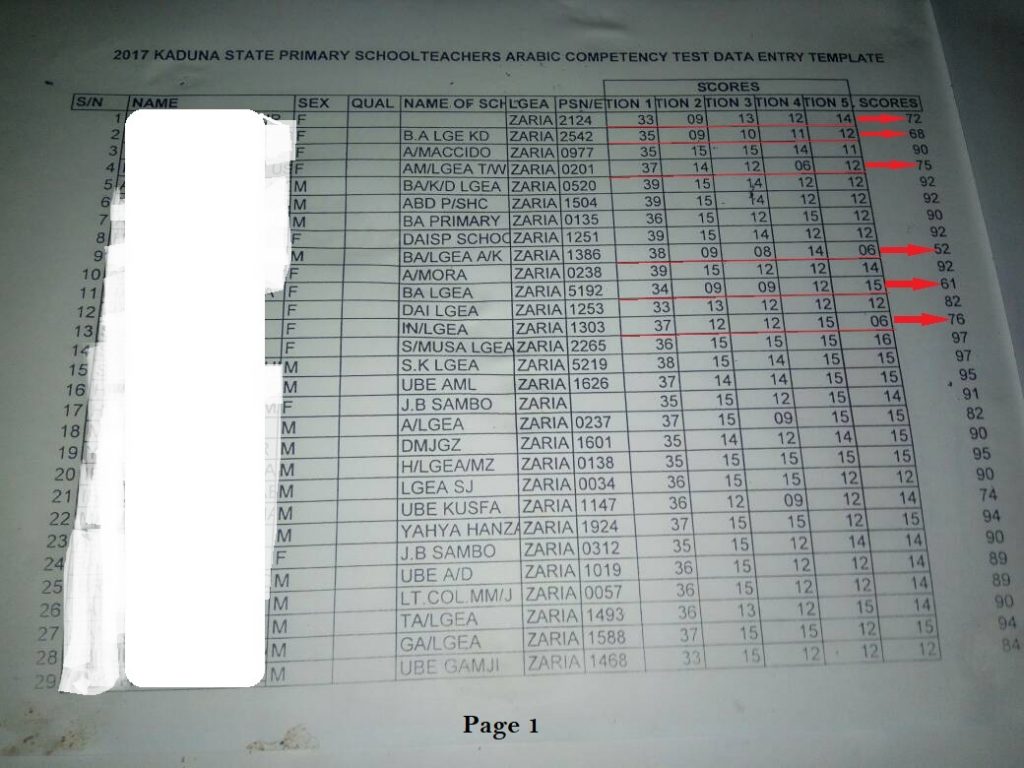
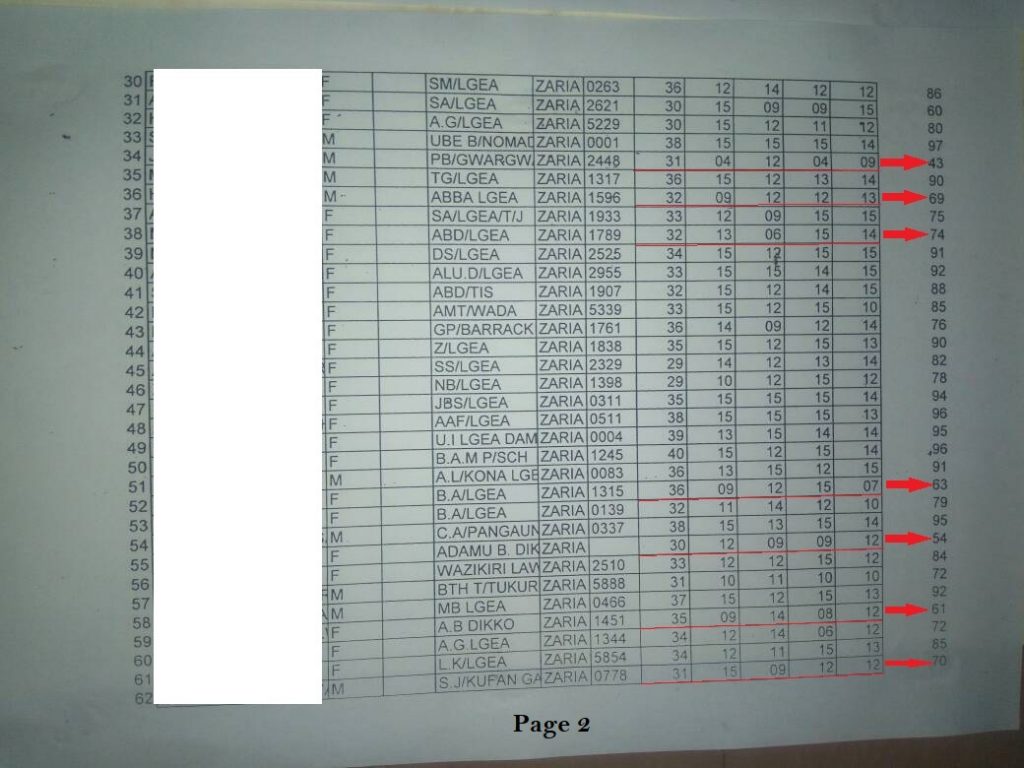
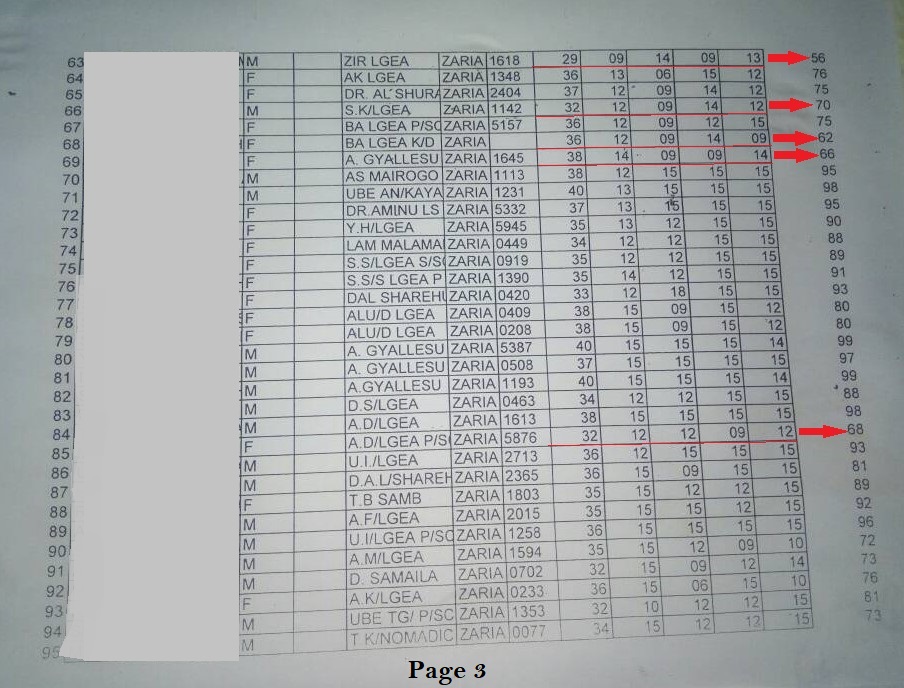
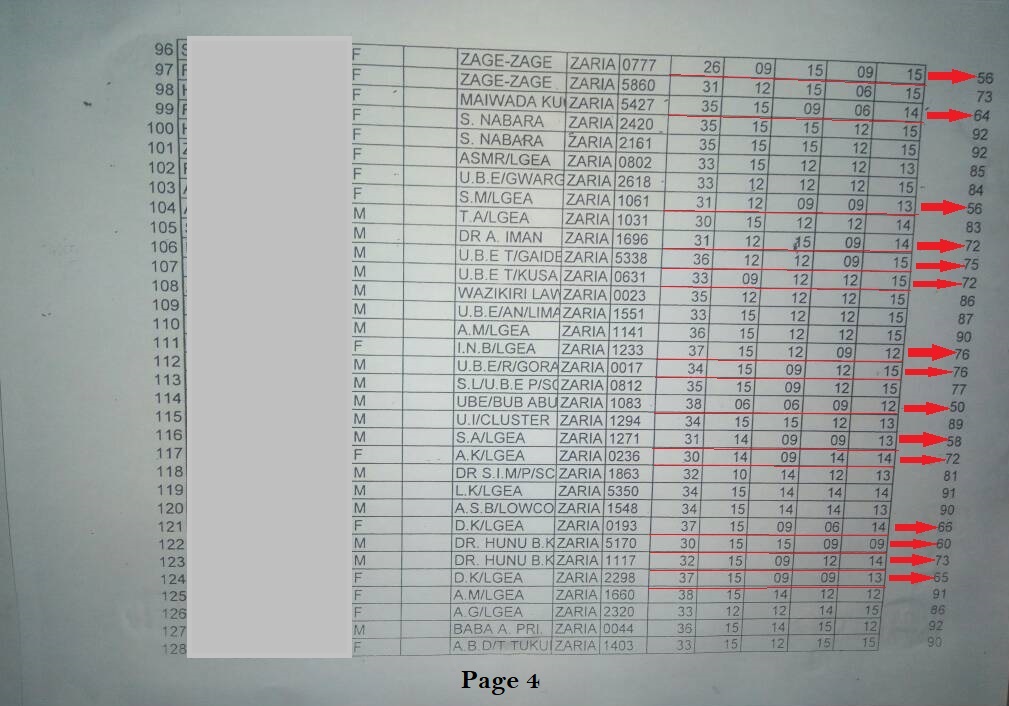










 “What we agreed in the committee was 60 per cent, only for the
Governor to use 75 per cent; yes, we agree that there are incompetent teachers
among us, but the decision of the state government was not what we agreed at
the committee level,” Amba said.
“What we agreed in the committee was 60 per cent, only for the
Governor to use 75 per cent; yes, we agree that there are incompetent teachers
among us, but the decision of the state government was not what we agreed at
the committee level,” Amba said. “The 2018
revenue and expenditure estimates are based on a robust medium-term expenditure
framework, which assumes a $42 benchmark price for oil at production levels of
1.8 million barrels per day, 17.5 per cent inflation, 1.9 per cent projected
real GDP growth and an exchange rate of N305 to a Dollar,” he said.
“The 2018
revenue and expenditure estimates are based on a robust medium-term expenditure
framework, which assumes a $42 benchmark price for oil at production levels of
1.8 million barrels per day, 17.5 per cent inflation, 1.9 per cent projected
real GDP growth and an exchange rate of N305 to a Dollar,” he said. “It is just like saying everyone who is six feet, five can play basket
ball. As human beings, we are equal but you cannot come and stand here and say
we should create nine states in each zone, Nigeria is not equal, likewise the
population and resources, you can’t do that. “The representatives of the
agitators are few in number and so the majority must always win. The president
of the country exists, the Senate exists and there are 36 states of the
federation.
“It is just like saying everyone who is six feet, five can play basket
ball. As human beings, we are equal but you cannot come and stand here and say
we should create nine states in each zone, Nigeria is not equal, likewise the
population and resources, you can’t do that. “The representatives of the
agitators are few in number and so the majority must always win. The president
of the country exists, the Senate exists and there are 36 states of the
federation. 